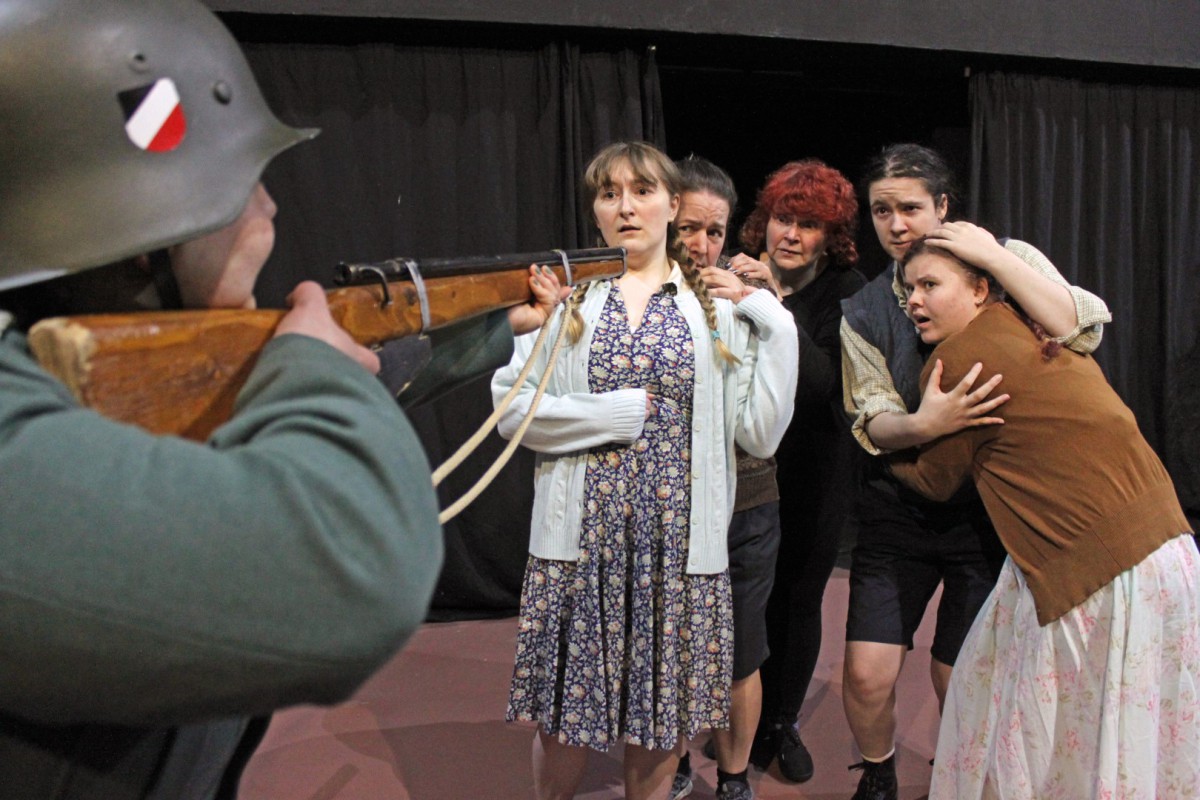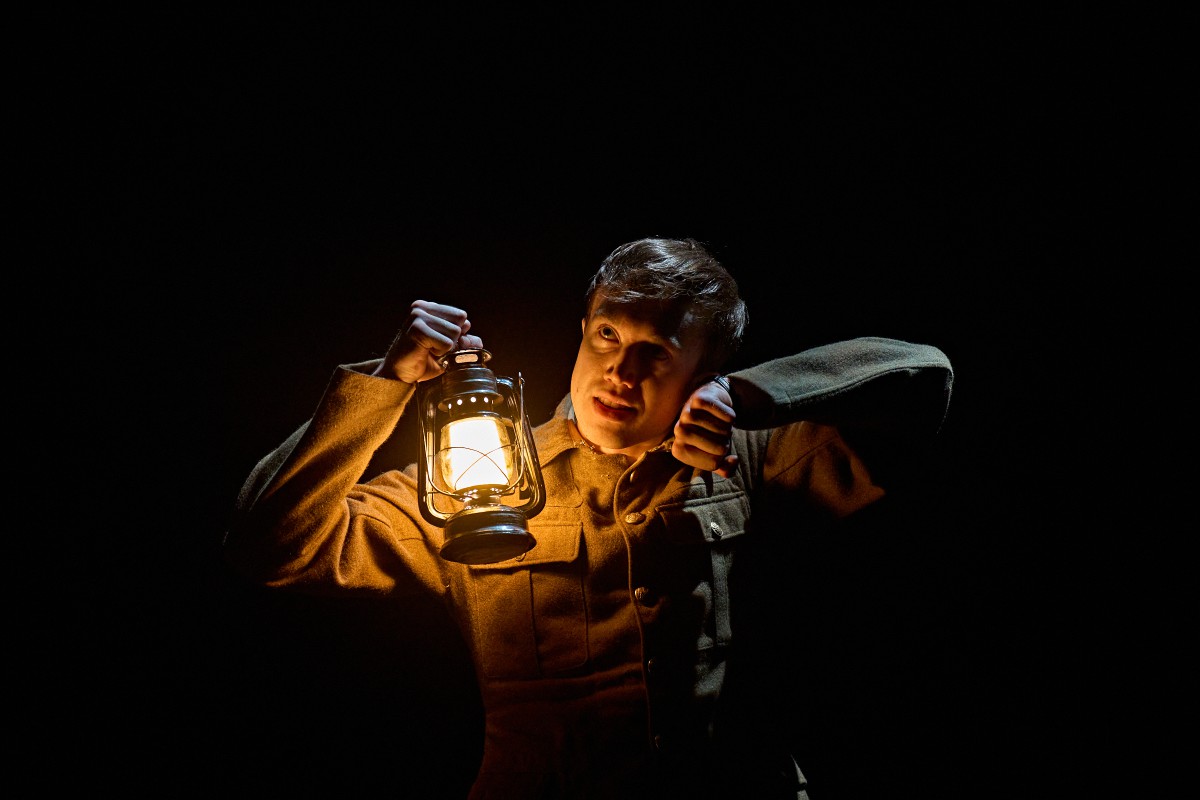War is never as far from us as might think, and this short run production reminds us of that in two ways.
Based on real-life recollections of the Nazi occupation of Jersey, Barbed Wire and Teddy Bears is a reminder that German forces did land in a British Crown Dependency: encroaching closer than is commonly remembered.
With the production in aid of the Red Cross Ukraine Crisis Appeal, it also reminds us that while the Second World War ended nearly 80 years ago people are still experiencing the pain of occupation today.
Karen Forbes’ script focuses on four young children living on Jersey (played by Aimee Wright, Diane Webb, Lizzie Martin, and Jenny Belsey) who act as everyman signifiers for the thousands of youngsters affected across the Channel Islands.
They are joined by two ensemble players (Ella Juliet Wilson and Melanie Peter) representing other children and adults, and a sole fleeting presence of the occupying forces (Philippa May Kerswill).
Their stories are charmingly told, though a tendency to switch from first-person storytelling to the cast acting as a chorus or individual narrators does break the scene somewhat, even if it helps to drive the narrative.
Robert Little’s direction has the children largely portrayed as sort of Famous Five figures: while we clearly have adults playing children, their exaggerated mannerisms means we are constantly reminded of that. When the play quietens down, we see particularly Wright’s and Webb’s talents come through, as they portray people rather than leaning towards somewhat cliched representations of how a child might act.
While the German presence on Jersey is talked about a lot, it is seldom seen. This may in part be due to the short run and black-box staging – with plain walls and just a smattering of suitcases for a set – but the very limited use of projection could have been extended to make the Nazi threat physically felt without distracting from a focus on the children, or pushing out the cast list.
A threatened deportation of one of the children’s families does not materialise and feels like a missed dramatic opportunity – their absence could have spoken even more loudly about the damage war can bring to a community.
That said, the play still offers an interesting spotlight on a less discussed aspect of history, and a reminder that these same threats are all too present.
- Barbed Wire and Teddy Bears continues at Sewell Barn Theatre, Norwich with a matinee and evening performance on Saturday, March 16, 2024


